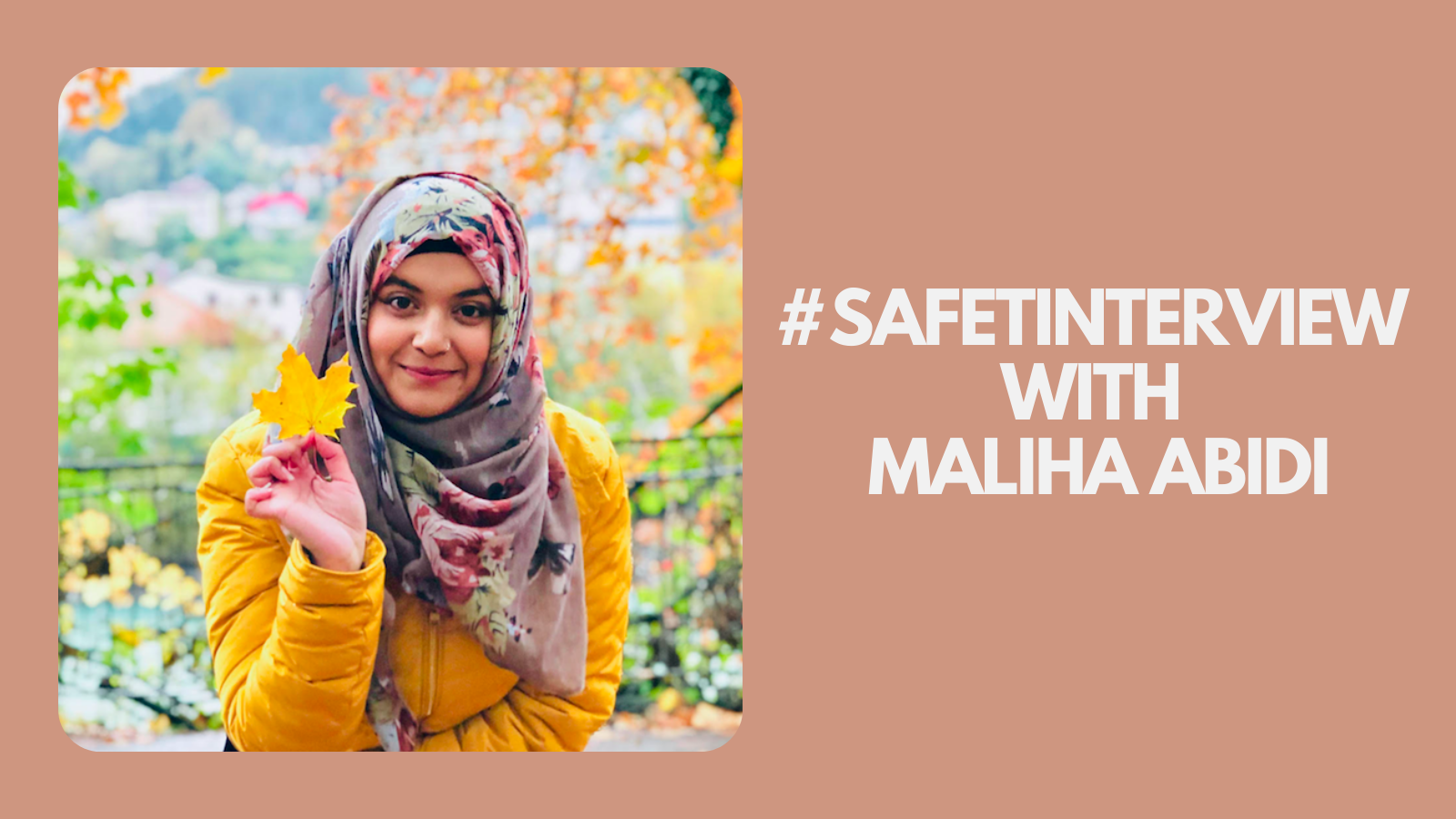
04 Oct #SAFETINTERVIEW with Maliha Abidi
Maliha Abidi is a 23-year-old artist and writer. She is from Karachi, currently studying Neuroscience at the University of Sussex while also continuing her passion for art and spirit for women empowerment through various projects, one of them being her upcoming book “Pakistan for Women”.
Q. What does #BalanceForBetter mean to you?
I think as a woman, I have a ton of responsibilities- I am a daughter, a wife and an artist. It’s really important for me to have good relationships with both my father and husband as I value them the most but my priority is my mental space. I want to support my family and have them do the same but I can’t do that if I’m not thinking clearly. It’s important to have a healthy mind, healthy lifestyle and healthy communication to handle everything right.
Q. Do you see a gender disparity within your work circle or friends’ groups? If yes, how do you tackle it? If no, what is your view on it?
I myself, have not seen it a lot, but that does not mean it doesn’t exist. It is very prevalent in my country, I know that. I’ve been fortunate in life and I come from a privileged household but that doesn’t mean that I deny or don’t believe the stories of others. I think that’s a fundamental problem with the movements like #MeToo that have come up in the last year- just because people don’t see it, they think it’s a lie. I think we need to create a community and society where people feel comfortable and safe enough to share their lives.
Q. Do you use public transport frequently? How do you think women participation in public spaces has improved in the last few years?
I have lived in San Francisco, UK and Pakistan and have used some public transport in all these places. In UK, especially to travel for university, I face problems with delayed trains but no harassment as such. In Pakistan, I have taken rickshaws for short distances and personally, have not faced any problem. It might have to do with the fact that I don’t travel alone much, I always have my cousins or friends with me. There are a few stares here and there but luckily I have never faced any aggression or problems. I think this also stems from my statement previously about how I do come from a privileged household.
Q. As a person in your line of work, do you feel that there are stereotypes and types of things that you’re expected to do? How do you feel about the same? How do you overcome it?
I definitely feel that there are stereotypes and expectations and they’re different for me as an artist and me as a woman. As an artist, I feel a lot of people think that it’s easy and a quick process to create art which is not true. It takes time and effort especially because I do all my work with hand and don’t use any software. I don’t do much commercial work, instead I work on projects and platforms. I have worked with UN Women, which was a great opportunity. As a woman, I feel like the fact that I got married young draws a lot of negative attention to me. My marriage was my choice and I’m happy but a lot of people pity me for it and question me for it which I don’t appreciate. I also feel like my hijab adds to it. People automatically think that I’m oppressed because I’m from Pakistan. I think I derived some inspiration for my book from here. I want to show that not all South Asian women have the same problems and struggles. I’ve written about women who are trying to come up with solutions to their individual problems and in turn are helping many others.
Q. Anything else you would like to add about the last year and the progress for women? Have you seen more women on the forefront or has it remained the same?
The last year for me has been a lot about my book. I’ve been fortunate enough to speak with many of the women featured in the book, one of the big names being Malala. I think it’s important to understand that no matter what platform you have, be it Facebook or Instagram, try to be the voice for those who don’t have one. I’m proud to say that my book is the first of its kind in Pakistan because there are so many inspiring women who don’t always get the apt recognition for their work. I’m happy to say that I have played a small part in doing that!

